How to Radically Reshape Society
Technology
“Utopia is such a loaded term.”
This is a clever refrain that I often get when I talk about “building utopia.” A slightly more idiotic version is “Utopia is worse than dystopia, actually.”
I understand that some people get tripped up on words. Sometimes they conflate socialism and communism, but hey who doesn’t confuse the two from time to time?
Most of the people I talk to and associate with are “Techno-Optimists” which is basically a slightly condescending way of referring to people who know the first thing about history.
But in some cases, I think it’s also a bit of cope. I mean sure, some of us optimists are hoping for a better tomorrow, which seems like a reasonably solid prediction based on the long arc of technological history. But no, I mean that sometimes the Techno-Pessimists are just sort of coping, too.
Maybe it’s a weird form of Stockholm Syndrome? Like the same people who react poorly to the realization that AI is going to destroy labor as we know it. It’s like when Americans say “Don’t take my health insurance!” and the politicians cynically spin that to say “See, Americans love private health insurance!”
No, it’s just the devil we know.
I’ve believed, for quite a long time actually, that politics, economics, and clever theories don’t really change society. I mean, not all that much. No single economic doctrine or even religion really dramatically changed people’s way of life. Poor American in 1800? Farmer, life expectancy 40’s. Poor Chinese in 1800? Farmer, life expectancy 40’s. Poor Russian in 1800? Alcoholic farmer, life expectancy 30’s.
See what I mean? Doesn’t really matter what socioeconomic or political region you were under, life was kinda harsh. Sure, life was immeasurably better if you were rich and powerful at any time throughout history. Pharaoh Ramses II, who lived over 3000 years ago, lived to be 90 and had a bunch of concubines. It’s always good to be king. But today, middle and low-income people regularly live to 90. To be fair, not as often as rich people. But you take my point.

I feel like I should try and package up my assertion as clearly as possible.
The fundamental driver of human progress throughout history has been technological advancement, not political or economic systems. While various ideologies and economic frameworks have shaped how technologies are implemented and distributed, they themselves are products of and constrained by the technological context of their time. The great political philosophers and economists—from Smith to Voltaire to Locke—built their theories upon the technological foundations available to them, whether they acknowledged this dependency or not.
When examining truly transformative moments in human history, we find that breakthrough technologies, not political manifestos, were the primary catalysts for change. The printing press, for instance, laid the groundwork for both the Enlightenment and the Reformation by democratizing access to knowledge. This pattern repeats throughout history: technological innovation creates new possibilities, and social/political systems adapt accordingly.
The relationship between capitalism and technological progress is particularly misunderstood. While capitalism has certainly been effective at commercializing and distributing innovations, it’s incorrect to credit it with their creation. The fundamental breakthroughs that drove the First and Second Industrial Revolutions emerged from scientific and engineering insights, not from market forces. Capitalism excelled at exploiting these innovations, but it didn’t birth them.
This pattern extends far beyond the modern era. Scientific and technological progress has occurred across all human societies and systems, from Archimedes’ discoveries in ancient Greece to the crafting of sophisticated musical instruments 40,000 years ago. Innovation is a fundamental human drive that predates and transcends any particular political or economic system. While capitalism can accelerate innovation through incentive structures, it is neither necessary nor sufficient for technological progress.
The true heroes of human advancement are the scientists, engineers, and inventors—both renowned figures like Edison and Tesla, and countless unnamed innovators—who push the boundaries of what’s possible. Their work, more than any political movement or economic doctrine, has fundamentally altered the human condition. A poor farmer in 1800 lived remarkably similarly whether under feudalism, early capitalism, or any other system. But today, thanks to technological progress, even those of modest means can access capabilities that would have seemed magical to our ancestors.
This perspective isn’t mere optimism—it’s a recognition of the historical pattern that technological advancement, not ideological revolution, is the primary driver of meaningful social change. The path to a better future lies not in political or economic dogma, but in fostering and democratizing innovation and scientific progress.
There’s really only one test you need to prove every Neo-Luddite is full of crap. Ask them this question:
If you’re so serious that technology isn’t everything, then go get rid of your air conditioning.
Not a single Neo-Luddite goes without AC. The deeper irony; most of them virtue signal about how “technology isn’t so great” from their iPhones on LinkedIn.
Take Substack for instance. I wouldn’t have this job if not for technology. Substack, for me, just started as an outlet to capture my intellectual musings. I wanted to get off Medium because I had no control over visibility, and Medium had not yet deigned to allow me access to my own profits. But over here on Substack, I had much more control and I get paid a hell of a lot more than on Medium.
Yes, the eagle-eyed among you will recognize “But Dave! Don’t you see the capitalism at work! The capitalism made the incentive structures to invent Substack and lure you over here!”
It’s true, and I won’t deny it. But as I already mentioned above, capitalism is about systematic exploitation rather than innovation for its own sake.

I was having a nice long chat with Claude about posture, exercise, and a bunch of neuroscience, when a new term popped up: high-leverage interventions. This term comes from systems theory and is about “a small change that can produce outsized benefits by capitalizing on critical elements within a system.”
I’d been trying to articulate this term for a while over on my Systems Thinking channel. Turns out I still need to learn a lot more about systems thinking (don’t we all?).
Johannes Gutenberg, with his printing press invention, created one of the highest leverage interventions in all of human history. It wasn’t just that he built one printing press, once the design was out, it was duplicated tens of thousands of times, creating the first exponential technology. One printing press can print the instructions for more printing presses, which can then be distributed globally relatively quickly.
It was like the first viral 3D printer capable of printing its own parts.
Yes, I will also be the first to admit that technology also tends to create novel problems.

Sure, child labor laws and OSHA were invented, and those are indeed social institutions that changed society. But they did not radically reshape our way of life.
The rise of office work, for instance, was not dependent upon who was in the Oval Office, nor was it dependent upon Wall Street or Downing Street. The rise of knowledge work and tech jobs was due, primarily, to STEM (Science, Technology, Engineering, and Math).
Put it this way; even Soviet central planning produced many of the same scientific and engineering breakthroughs as capitalist America did. The Soviet system was merely less economically efficient overall, and far more corrupt.
This all boils down to just one question:
So what’s the next “high leverage intervention”? What’s the next printing press moment?
It’s actually two technologies: AI and blockchain.
These technologies are going to fundamentally, radically restructure society. Information technology always has an outsized impact on society. Think about it:
Printing press: Helped start political, economic, and religious revolutions.
Radio and TV: Revolutionized information distribution through broadcasts.
Internet: Has dramatically altered jobs, economics, politics, and coordination.
It’s difficult to fully predict the ramifications of a new technology, but we can look at some principles:
Democratization of Information: Before the printing press, there were only a few roles in society that really benefited from literacy. Books were rare and expensive, and most people just needed basic records keeping, which didn’t require much literacy. After the printing press, literacy rates skyrocketed, which had countless downstream impacts on society, from the French Revolution onwards.
Network Effects: Information technologies tend to create powerful network effects where the value increases exponentially with more users. The internet enabled unprecedented coordination among people globally, leading to phenomena like open source software, Wikipedia, and social movements organized through social media. Each new user adds value for all existing users.
Compression of Space and Time: Information technologies consistently shrink both spatial and temporal distances. The telegraph compressed weeks of message delivery into minutes. Email made instant global communication free. Video calls made distance irrelevant for face-to-face interaction. This compression fundamentally changes how humans organize themselves and work together. It shortens feedback cycles.
Disintermediation: Information technologies often remove middlemen and gatekeepers. The internet removed the need for physical stores in many cases. Cryptocurrency attempts to remove banks from financial transactions. AI may remove the need for certain types of professional services. This tends to redistribute power and reshape institutional structures.
Automation: Each wave of information technology automates different aspects of mental work. Writing automated memory. The printing press automated reproduction of text. Computers automated calculation. AI is now automating increasingly complex cognitive tasks. This shifts what types of human labor are valuable, if any in the future.
Here’s just one example of how AI, as it is today, will have profound knock-on effects on society: education. Already, every child has easy access to not just information and knowledge, but an infinitely patient expert teacher. There are already stories emerging of young children grilling ChatGPT Advanced Voice Mode (AVM) for 45 minutes straight, including intuitively falling into math games. Children can follow their natural curiosity and learn at their own optimal pace.
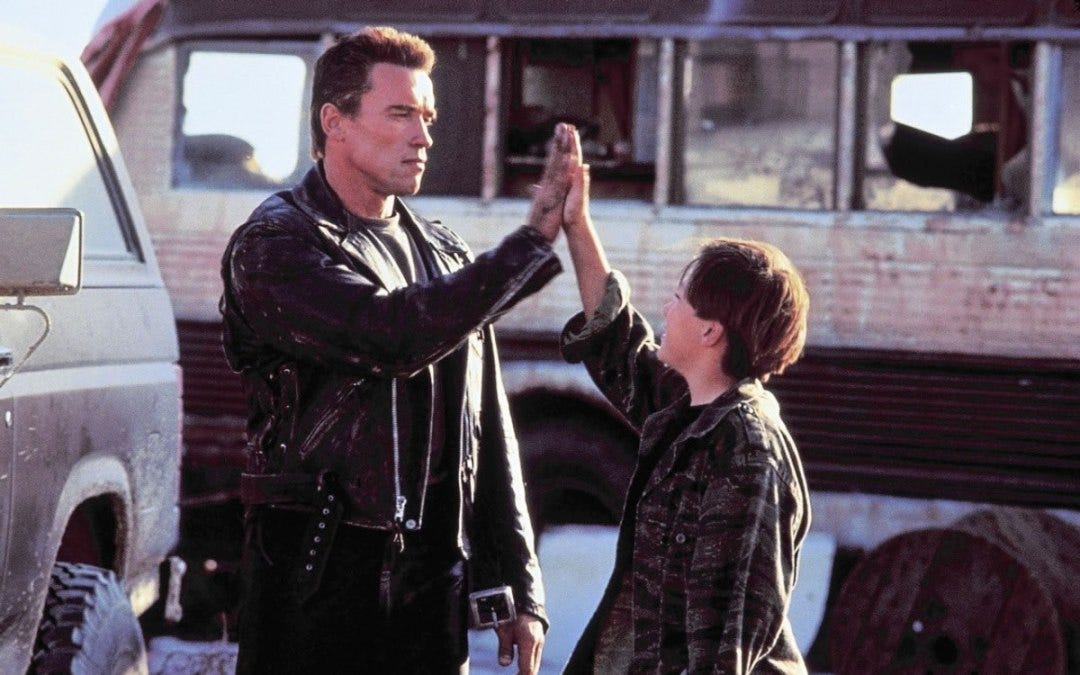
This one impact alone would have extraordinary long-term consequences. Today, even poorly educated children are more literate and informed than the vast majority of children even 100 years ago. In another 100 years, your typical high schooler will have several PhD’s worth of knowledge and skills. And the wildest part? It will all be from their natural curiosity and ambient saturation of super-intelligent machines.
You see, children naturally ask about 40,000 questions during their developing years. Humans are naturally curious. It’s our superpower. But instead of pestering overloaded parents (which will probably be solved by Post-Labor Economics anyways) they will be able to ask their favor AI-powered toy, probably a little dog that follows them around and has an IQ of 150 or so.
Blockchain is a natural extension of this, but it offers some fundamentally different affordances. Rather than bore you with tales about triple entry accounting, I’ll just point out the aggregate effect of blockchain: transparency.
Everyone goes on and on about how important transparency is. Corporate transparency. Governmental transparency. Military transparency. There are good reasons for this, by the way.
Market Transparency: Markets are more efficient when market information is readily available and trustworthy. This is why the SEC requires public disclosures of publicly traded companies. Market-relevant information enables investors to make better decisions, which increases the accuracy and efficacy of allocated capital.
Political Transparency: The less transparent a government, the more corrupt and totalitarian it is. Fascist and Communist (with a big C) regimes are notoriously opaque, which creates lots of opportunities for corruption, malevolence, and reduces accountability. Accountability enhances democracy.
Error Detection: Transparency enables systems to identify and fix mistakes more quickly. When processes are visible, errors become apparent sooner and can be addressed before cascading into larger problems. This creates positive feedback loops for system improvement.
Trust Generation: Transparency creates predictability and reliability, which naturally generates trust. When actors can verify claims and monitor processes, they're more likely to engage and cooperate. This principle works across social, technical, and economic systems.
Power Distribution: Transparency tends to naturally distribute power rather than concentrate it. When information asymmetries decrease, monopolies on knowledge and control become harder to maintain. This creates more resilient and antifragile systems.
Innovation Acceleration: When processes and knowledge are transparent, innovation can happen faster through recombination and improvement. Others can build upon existing work rather than reinventing from scratch. This creates compounding effects in technological and social progress.
To put it as simply as possible, there has never been a technology that could solve public accountability, transparency, and data integrity the way that blockchain can.
Now, you might be thinking “Well, Dave, if blockchain is so magical, why isn’t it everywhere already?”
It sort of is, though, isn’t it?
The original Internet first went online in 1969 and really took off in 1999. Truly seismic technologies have an incubation period of about 30 years. Blockchain, in the form of Bitcoin, emerged around 2009, which means that 2034 is right about on time for blockchain to hit its primetime!
So, how can we make this reality happen, if it’s all basically automatic?
Long Live the Integrators!
Yes, that was a Dune reference. Okay, it’s not entirely automatic. What I mean by this is that even if you do nothing, everyone else going about their business will make this techno-utopia happen. In other words, if you want to, just kick back and enjoy the ride.
Capitalism will do the rest of the work from here. As much as I hate to say it, yes, we still need capitalism (for now).
The inventors have done their part, and now it’s time for everyone else to do theirs.
Bitcoin was invented by Satoshi Nakamoto, whoever that is. That was the last real Gutenberg moment. A nearly identical moment was Google’s Attention is All You Need paper, which is the direct ancestor of today’s AI revolution.
As you might know, I’ve been working on a book, the working title of which is Welcome to the Psychedelic Revolution. Even though the science and data is overwhelmingly positive—psychedelics are safe and effective, reliably producing incredible benefits—the question of “how do you integrate them into society?” is non-trivial to answer.
How do you control them? How do you sell them? Do you regulate or not? How do you mitigate harms and risks? How do you protect people from fraud and overdoses? It becomes a public health question just as quickly as it becomes an economic question. Concerns about rights, safety, profits, and unintended questions all crop up immediately.
Likewise, the same exact thing happens with AI and blockchain.
And, in both cases, entrenched capital and the Establishment rears its ugly head. The last thing pharmaceuticals want is a treatment that can one-shot your depression or anxiety away. A cured customer is no longer a customer! That’s why Big Pharma loves creating legally prescribed ultra-addictive substances like opioids and stimulants. Furthermore, that’s why they love medicalizing normal childhood behavior: get ‘em while they’re young!
If I sound like Comrade Marx, it’s because I just finished reading VULTURE CAPITALISM by
. I have a love-hate relationship with capitalism and neoliberalism.Anyways, my point here is that it’s time for systems integrators to step up and weave these new technologies into society. That means deploying them commercially, advocating for legislative reforms, and teaching the masses how to work with and use these technologies.
The internet didn’t build itself. However, once TCP/IP came around, the economic case for the internet was too compelling to ignore. Likewise, as we develop more sophisticated AI agents and robust A2A protocols, the economic case for AI will become unignorable. The march of progress is inexorable. Blockchain will soon follow suit. The case is just too powerful, and it’s too useful not to exploit.
Will these technologies have unintended consequences, like upending the art and music industry? Absolutely, but there’s no getting off this Merry-Go-Round. Like Metallica said, it’s a freight train comin’ your way!


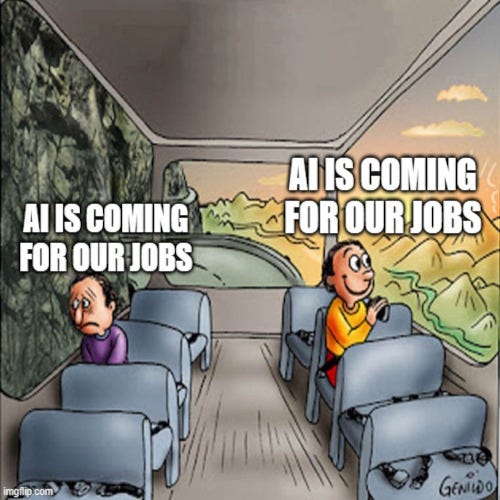
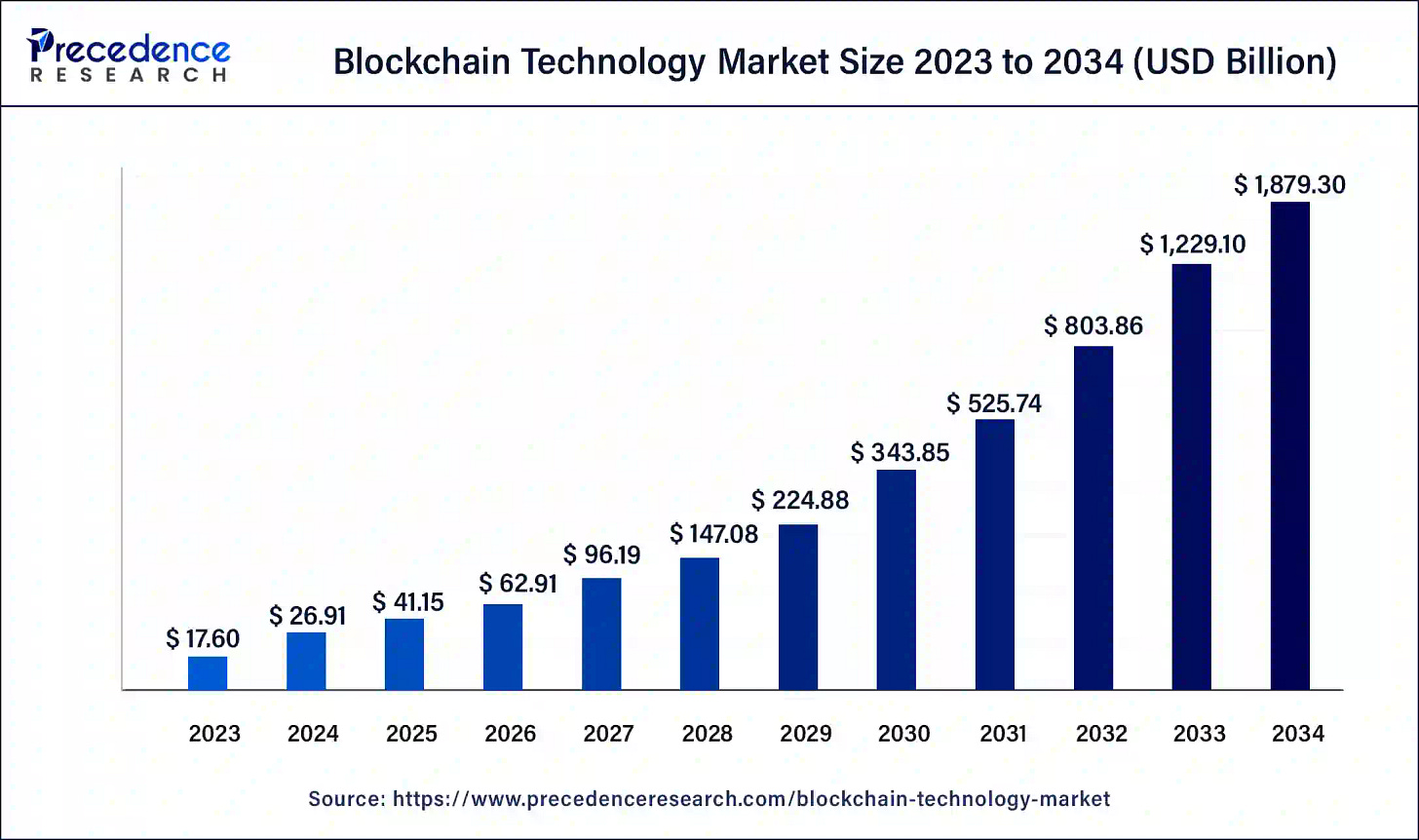
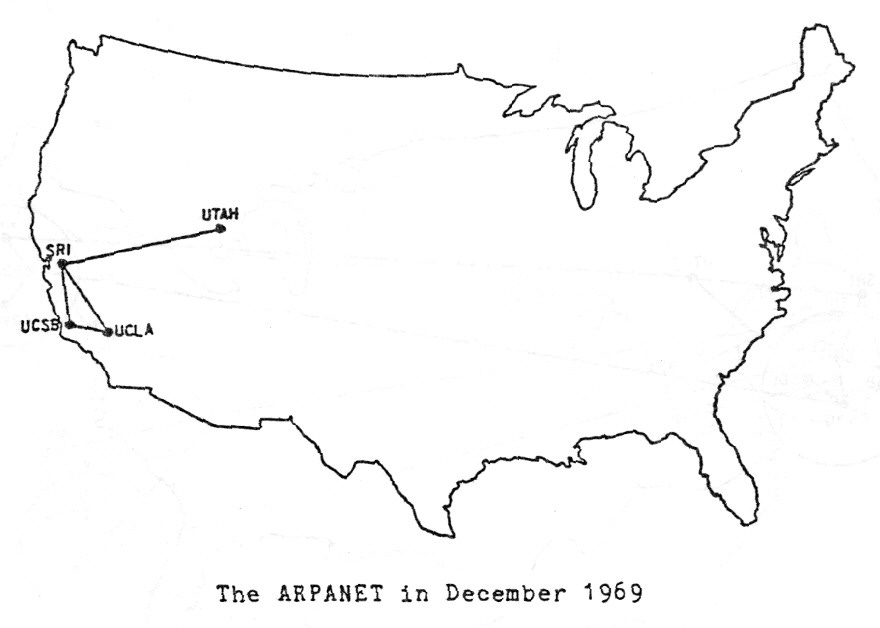
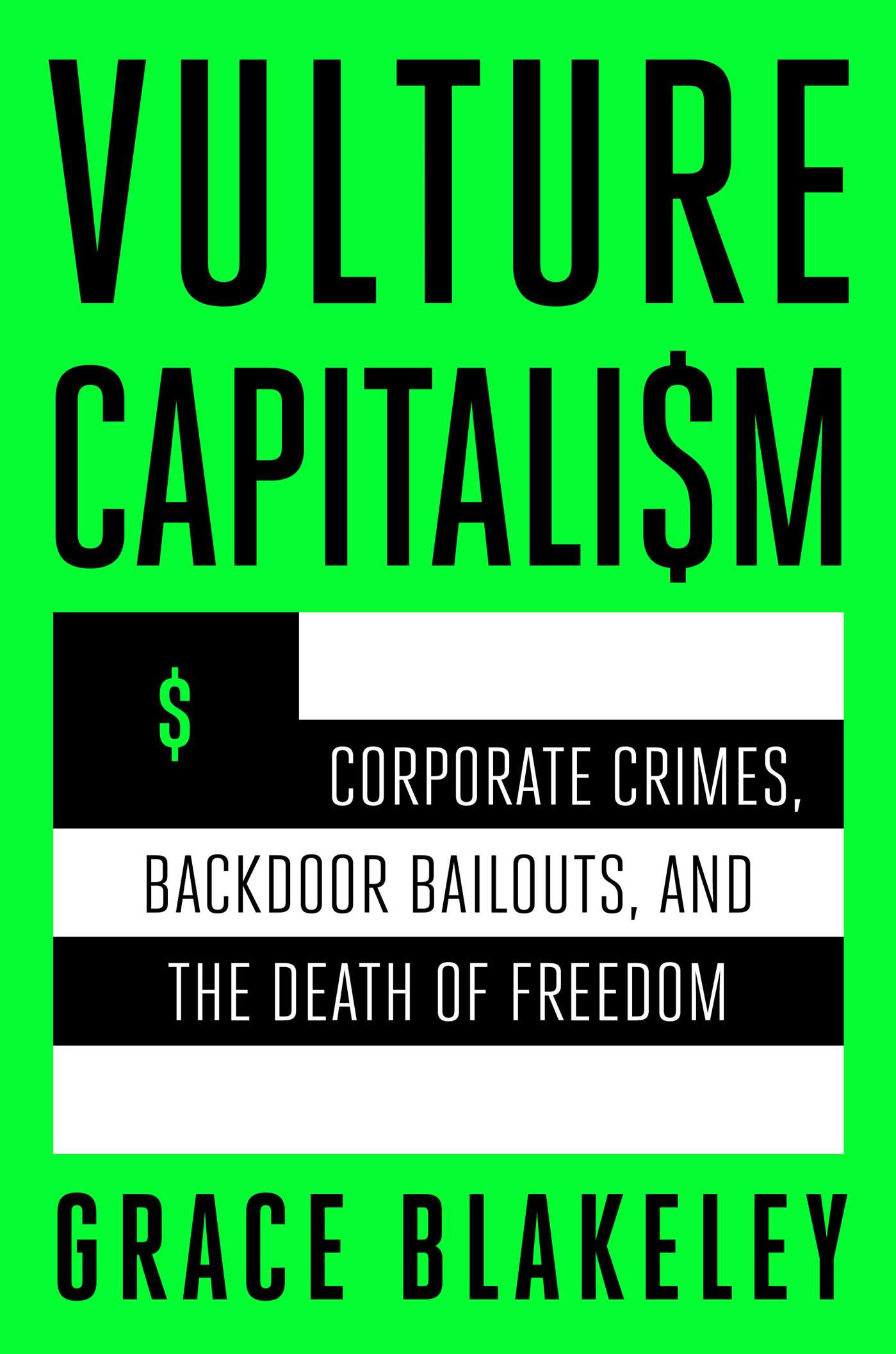
Thank you for sharing your insights. Your Substack is truly inspiring!
Your thoughtful intellect provides an oasis of peace in a world of never ending dogma and world-ending crises. Thank you.